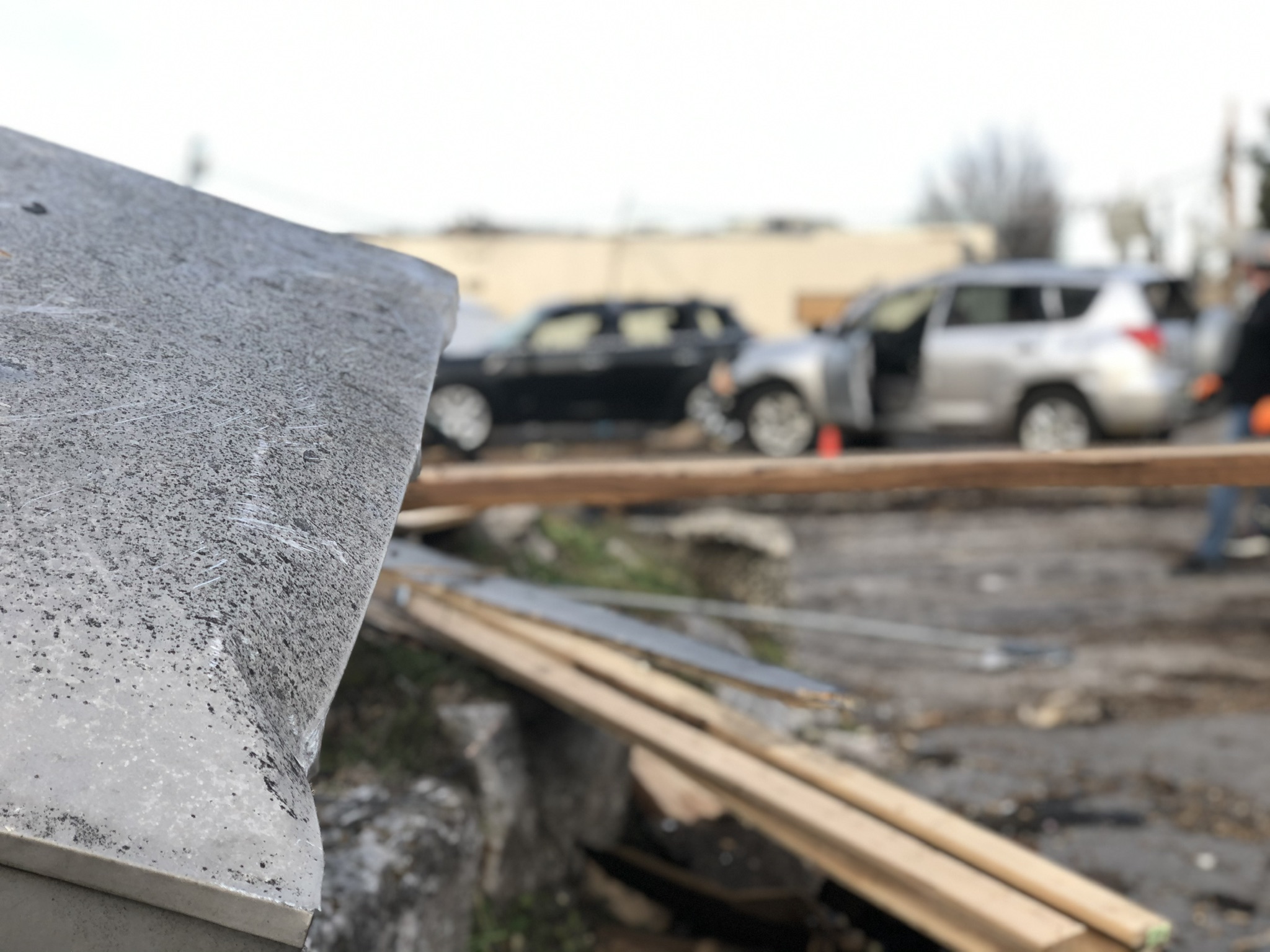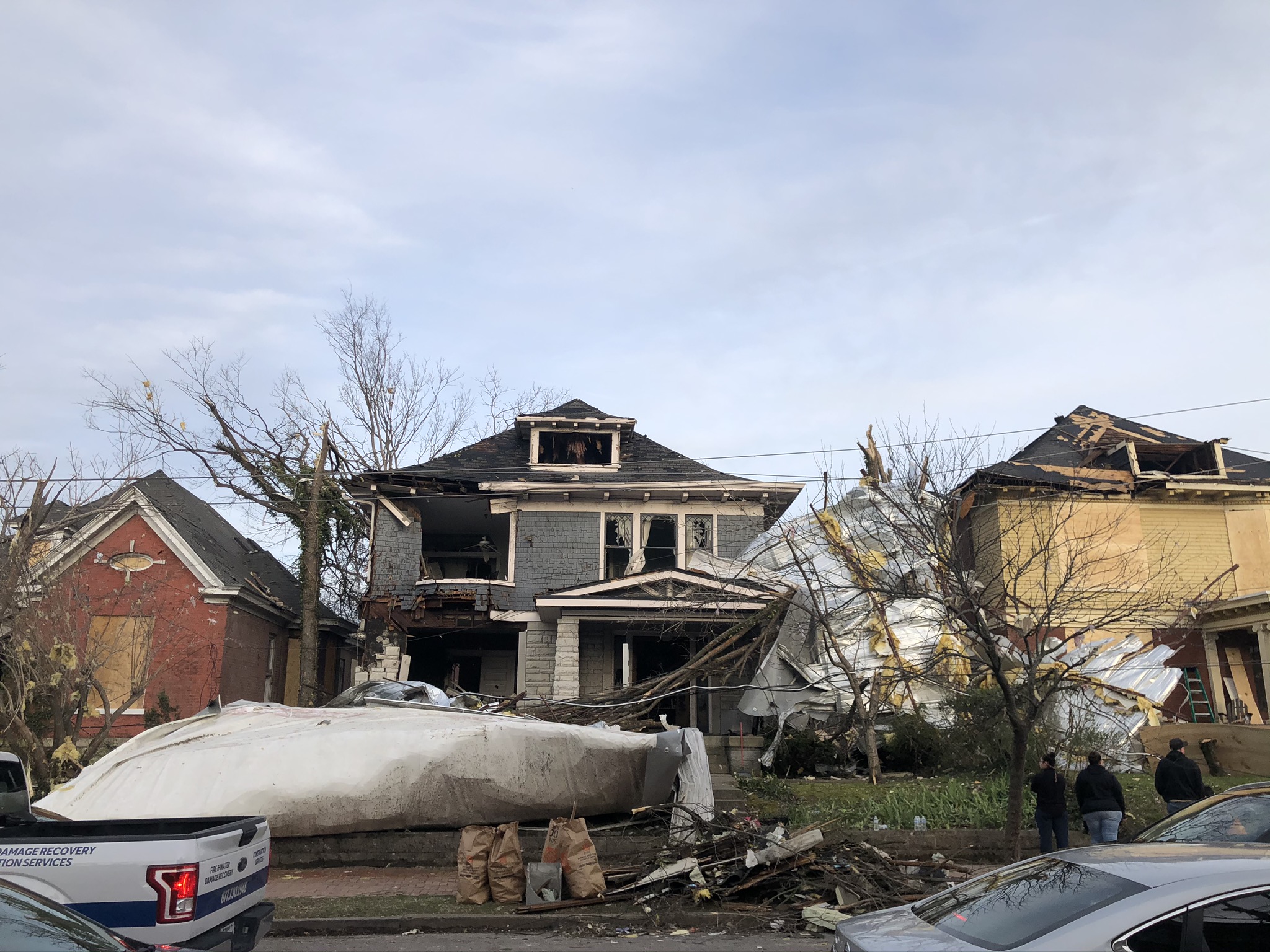
My phone buzzed early in the morning, echoing the same questions from loved ones around the country.
“Are you okay?” “You guys good?” “Were you hit?”
The news and photos of Nashville’s tornado carnage were now circulating nationwide. We were among the lucky ones in Germantown. The tornado had touched down blocks from our home in the dead of night, but then traveled in the opposite direction. While our building was still standing, the debris, loss, and wreckage around us was overwhelming.
The inquiries from loved ones and friends were kind. A consistent message permeated them all: “Please let me know if there’s anything we can do for you.”
I knew my family and friends wanted to be of service. And as we struggled to figure out our next steps, we realized that those around us were struggling with feeling helpless in their own way. There’s an immense feeling of camaraderie when tragedy strikes, but it can be hard to know what someone needs (they may not even know).
There’s an immense feeling of camaraderie when tragedy strikes, but it can be hard to know what someone needs (they may not even know).
So, in an effort to help those who want to be there for their loved ones, I’ve compiled a list of ways to effectively support loved ones through a natural disaster (or any other grief-stricken experience).

4 Ways to Support Your Loved Ones in a Natural Disaster:
1. Establish Multiple Points of Contact
Initially reaching out to check in to see if your loved one is alright is always appreciated. It’s nice to be thought of. However, it can also be overwhelming because so many people are calling and texting. In this moment, ‘safety’ and ‘well-being’ are binary, yes/no answers.
But as the days and weeks stretch on, your loved ones are more apt to experience a plethora of emotions and needs. They may feel inadequate about reaching out, believing they should ‘have it all together’ already.
Multiple check-in points following a natural disaster not only show that your loved ones are top-of-mind, but also allows them to open up to you for help and connection.
2. Practice Compassionate Listening
When someone is going through something difficult, it’s hard to know what the ‘right’ thing is to say, especially if you’ve never been through it. While positivity, encouragement, or commiseration may seem like natural answers, what they really need from you in that moment is presence. If you try to cheerlead them to a better state, that can contribute to them feeling isolated and misunderstood.
Being a compassionate witness allows them to experience whatever emotions they need to without judgment. It also helps move them up the emotional scale just by honoring and recognizing where they’re at.
The best way to be a compassionate listener is to provide validating statements about their situation and ask lots of open-ended questions. For example, “I can’t imagine how hard this must be for you. What has surprised you the most about this experience?” or, “I’m so sorry you guys are going through this. How are you taking care of yourself during this difficult period?” Other options include, “I have to imagine you’re dealing with a lot of different emotions right now. What are you experiencing?”
Compassionate listening helps your loved ones feel understood and accepted wherever they are. And by being able to talk through their emotions, it helps them get back to a neutral emotional state, which will help in their healing.
3. Offer specific modes of help
We’ve all been on the receiving end of a, “Let me know if there’s anything I can do for you,” message. And while well intentioned, it’s ineffective. It puts the burden on the grieving to know how you can best help them in a moment of intense overwhelm.
Instead of putting forth a generic offer, think through some of the ways they may be struggling with and how you could add value. Are they experiencing a power outage? Offer to take their food out of their fridge/freezer and store it in yours. Drop off some fully charged portable batteries so they can keep their phones charged. Or bring over a hot meal. Know they have to deal with debris cleanup? Offer to watch the kids or pets. Even if you’re far away, you can send extra batteries for flashlights, candles, dry shampoo, or gift cards to restaurants nearby that you know are open.
4. Donate to relief efforts
If you can’t be there to physically support, or are wanting to help impact the cleanup, contributing to those who are leading the relief efforts can greatly affect your loved ones.
In the case of Nashville’s tornado:
The Community Foundation has activated a “Middle Tennessee Emergency Relief Fund” where you can donate.
United Way’s local chapter has activated for Middle Tennessee. You can text RELIEF2020 to 41444.
A GoFundMe has been put up to directly benefit the 25 casualties. You can donate here.
In the days and weeks following tragedy, how help is offered can truly change the level of support someone feels through their journey. It can elevate a generous offer that feels ‘nice to have’ to a deeply impactful action. By providing multiple check-ins, engaging in compassionate listening, putting forth specific offers, and donating to the existing relief efforts, you will supply the emotional support needed to get your loved ones back on their feet.

ABOUT THE AUTHOR: Hilary Billings is an on-camera host, celebrity interviewer, and digital influencer. As a former Miss Nevada, producer for E! News and travel host for Norwegian Cruise Line, Hilary has been a featured contributor for USA Today, Thrive Global and Huffington Post as well as being featured on Extra! Entertainment TV. As a burn survivor with humorous monologue viral videos viewed by an online audience of millions, Hilary is focused on everything but the superficial. She is a sought-after speaker and coach that helps people overcome inadequacy through finding, interpreting and affirming their self-worth. For more on Hilary and her Quick Steps to Confidence, visit: www.HilaryBillings.com.

